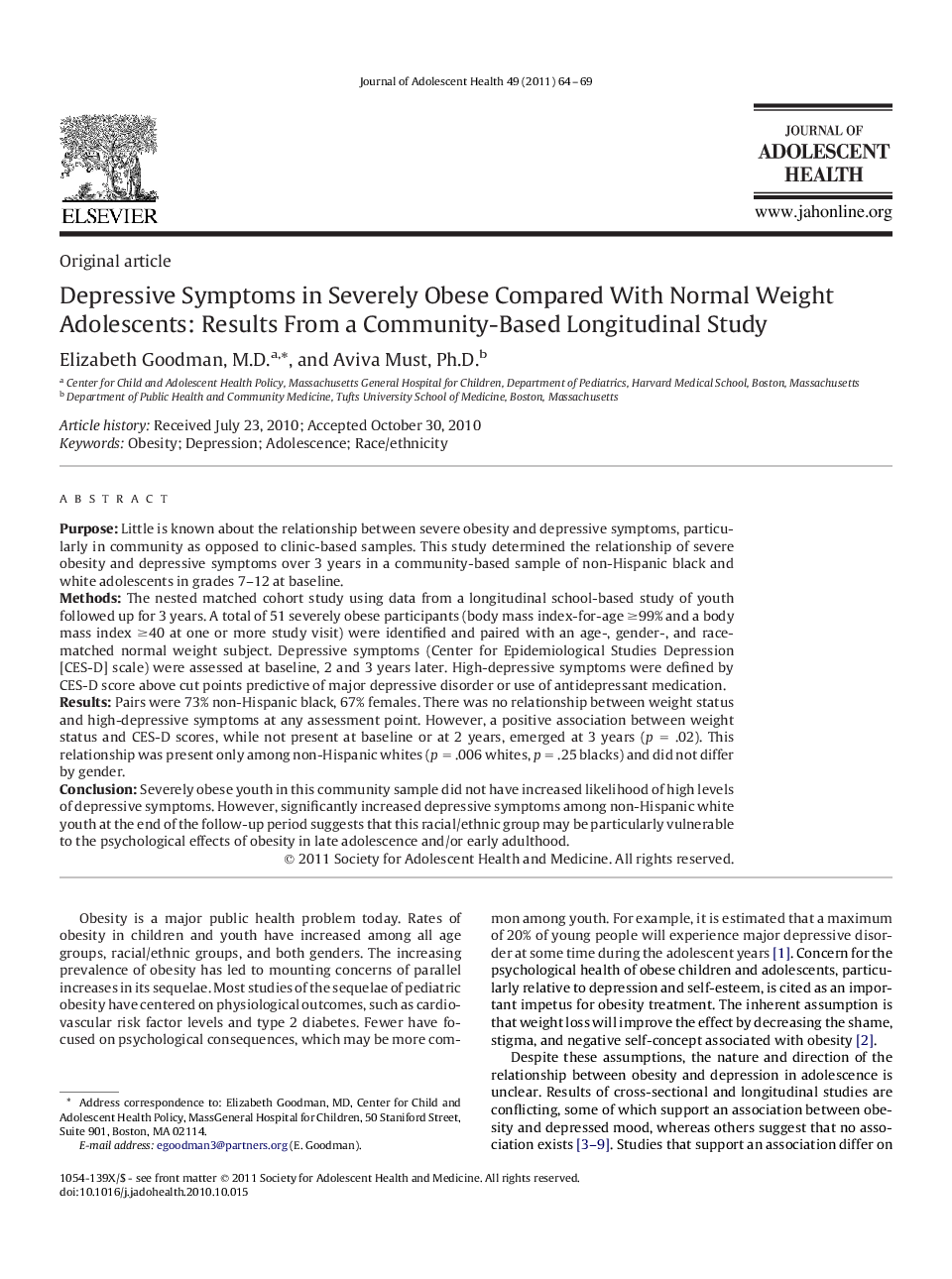| Article ID | Journal | Published Year | Pages | File Type |
|---|---|---|---|---|
| 1079696 | Journal of Adolescent Health | 2011 | 6 Pages |
PurposeLittle is known about the relationship between severe obesity and depressive symptoms, particularly in community as opposed to clinic-based samples. This study determined the relationship of severe obesity and depressive symptoms over 3 years in a community-based sample of non-Hispanic black and white adolescents in grades 7–12 at baseline.MethodsThe nested matched cohort study using data from a longitudinal school-based study of youth followed up for 3 years. A total of 51 severely obese participants (body mass index-for-age ≥99% and a body mass index ≥40 at one or more study visit) were identified and paired with an age-, gender-, and race-matched normal weight subject. Depressive symptoms (Center for Epidemiological Studies Depression [CES-D] scale) were assessed at baseline, 2 and 3 years later. High-depressive symptoms were defined by CES-D score above cut points predictive of major depressive disorder or use of antidepressant medication.ResultsPairs were 73% non-Hispanic black, 67% females. There was no relationship between weight status and high-depressive symptoms at any assessment point. However, a positive association between weight status and CES-D scores, while not present at baseline or at 2 years, emerged at 3 years (p = .02). This relationship was present only among non-Hispanic whites (p = .006 whites, p = .25 blacks) and did not differ by gender.ConclusionSeverely obese youth in this community sample did not have increased likelihood of high levels of depressive symptoms. However, significantly increased depressive symptoms among non-Hispanic white youth at the end of the follow-up period suggests that this racial/ethnic group may be particularly vulnerable to the psychological effects of obesity in late adolescence and/or early adulthood.
